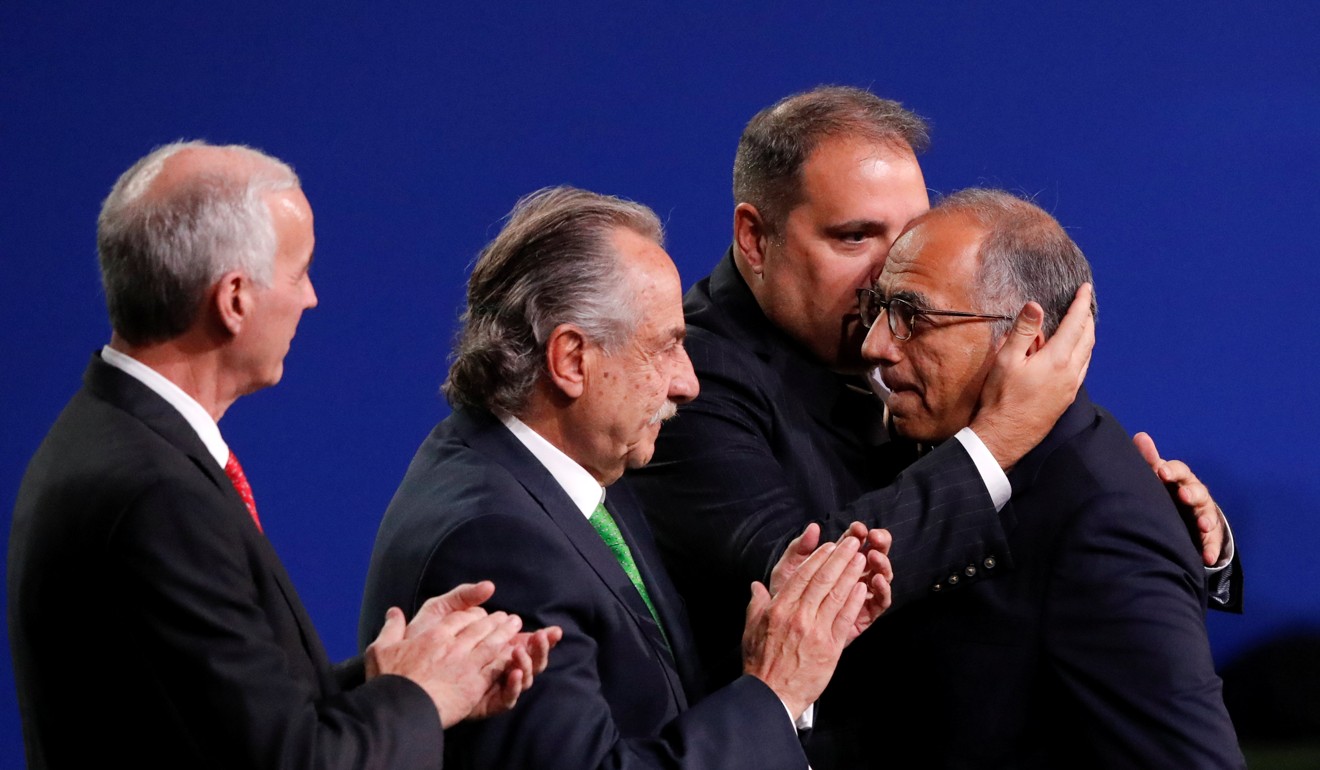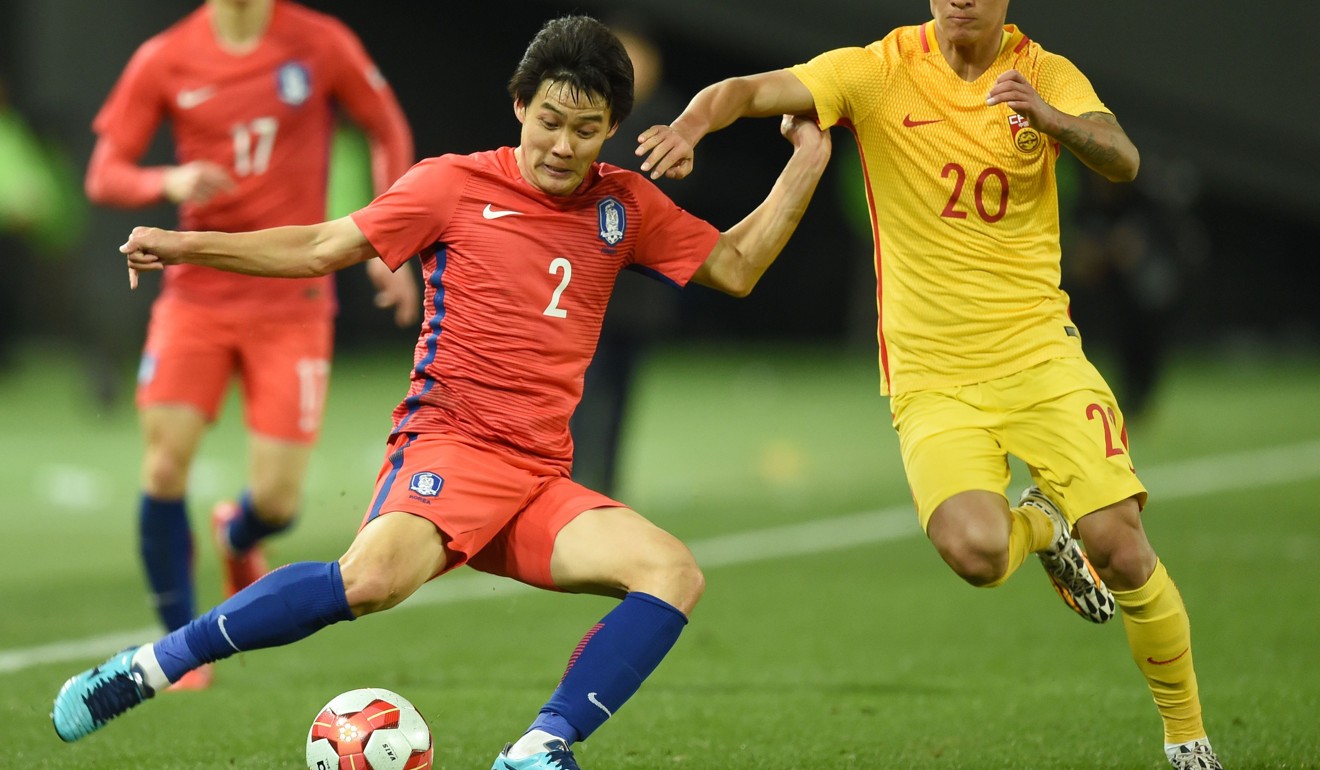
Fifa World Cup 2026 voting precedent could hurt China’s hosting hopes due to Hong Kong and Macau links
Puerto Rico, Guam and US Virgin Islands decide not to vote due to their status as US protectorates, an issue that could one day impact the mainland
The United States, Canada and Mexico will hold the 2026 World Cup finals after their United bid won the hosting rights by a landslide in Moscow on Wednesday, but a precedent set in the voting could lead to complications for China’s hopes in the future.
The United bid secured 134 votes to Morocco’s 65 to secure a victory in the two-horse race that takes the tournament back to North America for the first time since the United States hosted the 1994 finals.
“To have a message coming from football that says actually Mexico, Canada and the United States together can organise the biggest sporting and social event together, it is a nice message,” said Fifa president Gianni Infantino.
The decision ensures the World Cup will be co-hosted by three nations for the first time after a vote by 203 member associations – three nations abstained and one, Iran, voted for none of the bids – at the Fifa congress that represented a break with the past.
Previously, the 24-man executive committee – now renamed the Fifa Council and expanded to 32 members – awarded the hosting rights, a practice that was ended after the body controversially handed Russia and Qatar the 2018 and 2022 finals respectively.
But a decision on Wednesday by Puerto Rico, Guam and US Virgin Islands to not vote due to their status as United States protectorates, following pressure from Morocco officials who felt the associations would be biased against their bid, could have repercussions for Hong Kong and Macau in any future Chinese attempt to host.
Chinese officials have made no secret of the desire to win the rights to the World Cup finals following president Xi Jinping’s declaration before his ascent to the most senior political post that the country hold the tournament at some point in the future.

That declaration, and the huge sums of money that have been poured into the game in China since Xi became president in 2013, have led to continual speculation that the country would bid to host the World Cup finals in either 2030 or 2034.
While both Hong Kong and Macau retain sporting autonomy from China for 50 years after each territory returned to Chinese rule – in 1997 and 1999 respectively – the perception that Beijing could influence how they vote under such circumstances would likely leave rival bidders adopting a stance similar to that taken by the Moroccans.
That would not be an issue if China’s bid was to win by a margin similar to that attained by the North Americans on Wednesday, but in a tight battle where every vote would count it could cause problems.
Chinese officials could, however, point to Wednesday’s voting to mitigate against claims that Hong Kong and Macau follow orders from Beijing.

In an another new development in this year’s decision-making process as Fifa attempts to introduce greater transparency, the game’s governing body released the complete voting list for the 2026 finals.
China and Macau both backed the Moroccan attempt to take the finals to North Africa for the first time. Hong Kong, meanwhile, voted for the United bid.
“Hosting the 2026 Fifa World Cup is a rare and important moment to demonstrate that we are all truly united through sport,” US Soccer president Carlos Cordeiro said after the result was announced.
“We are humbled by the trust our colleagues in the Fifa family have put in our bid, strengthened by the unity between our three countries and the Concacaf region and excited by the opportunity we have to put football on a new and sustainable path for generations to come.”

